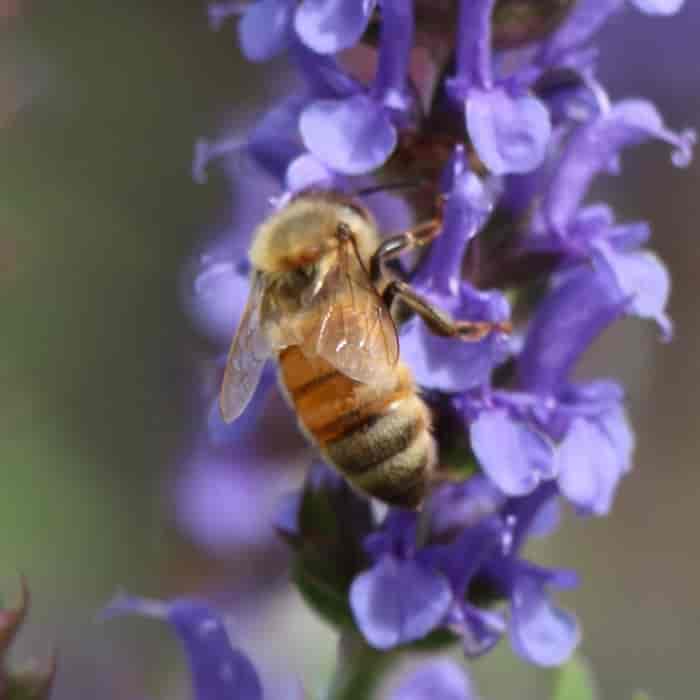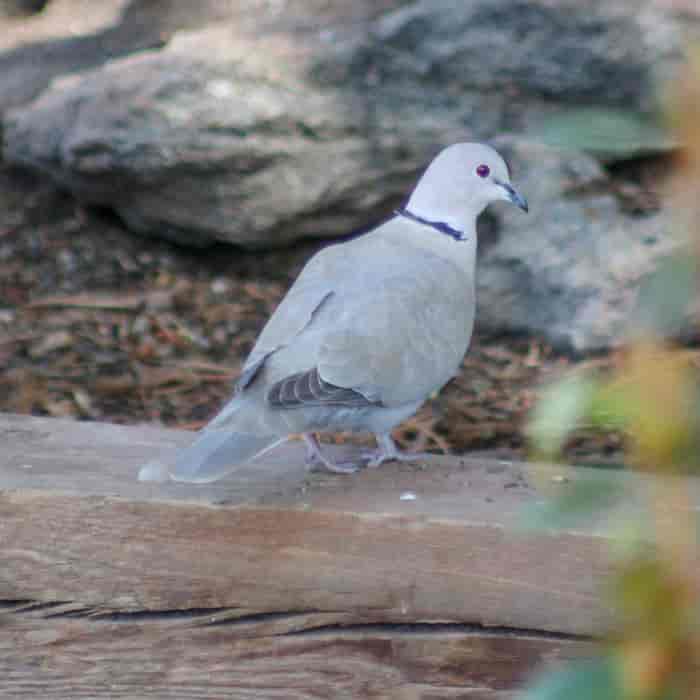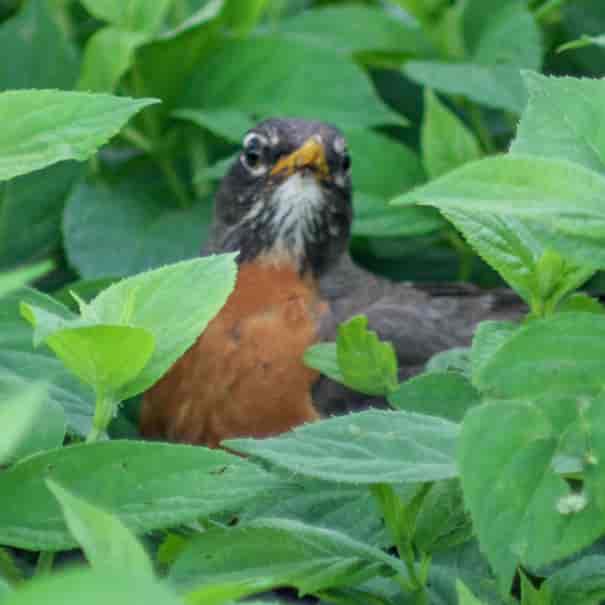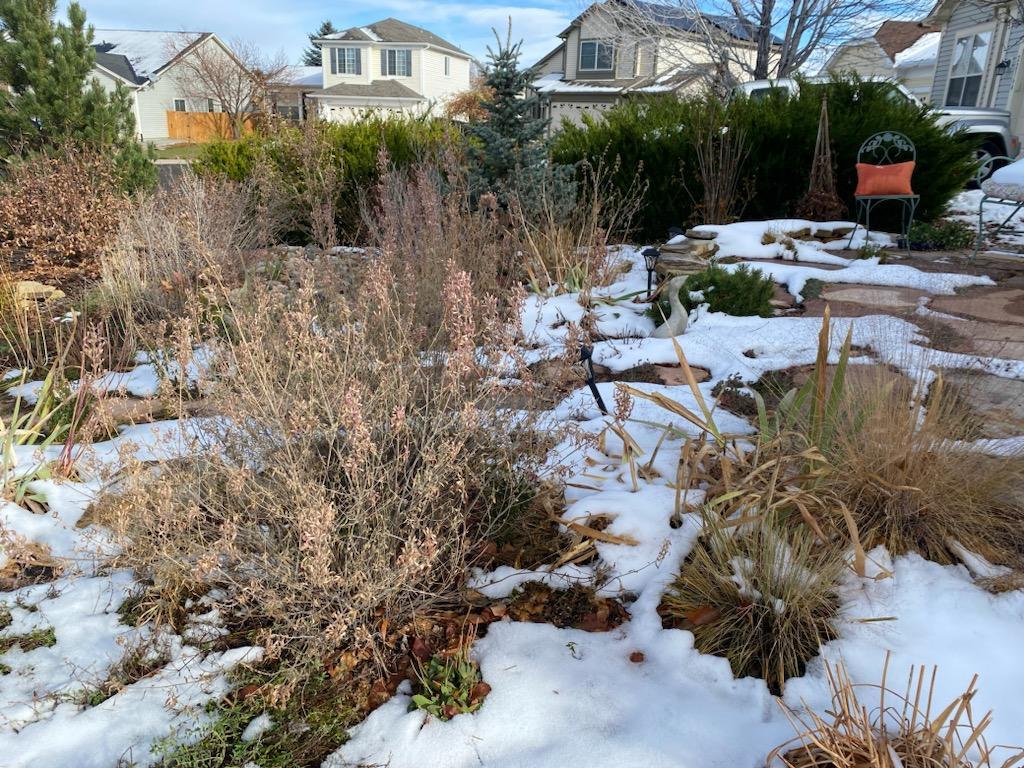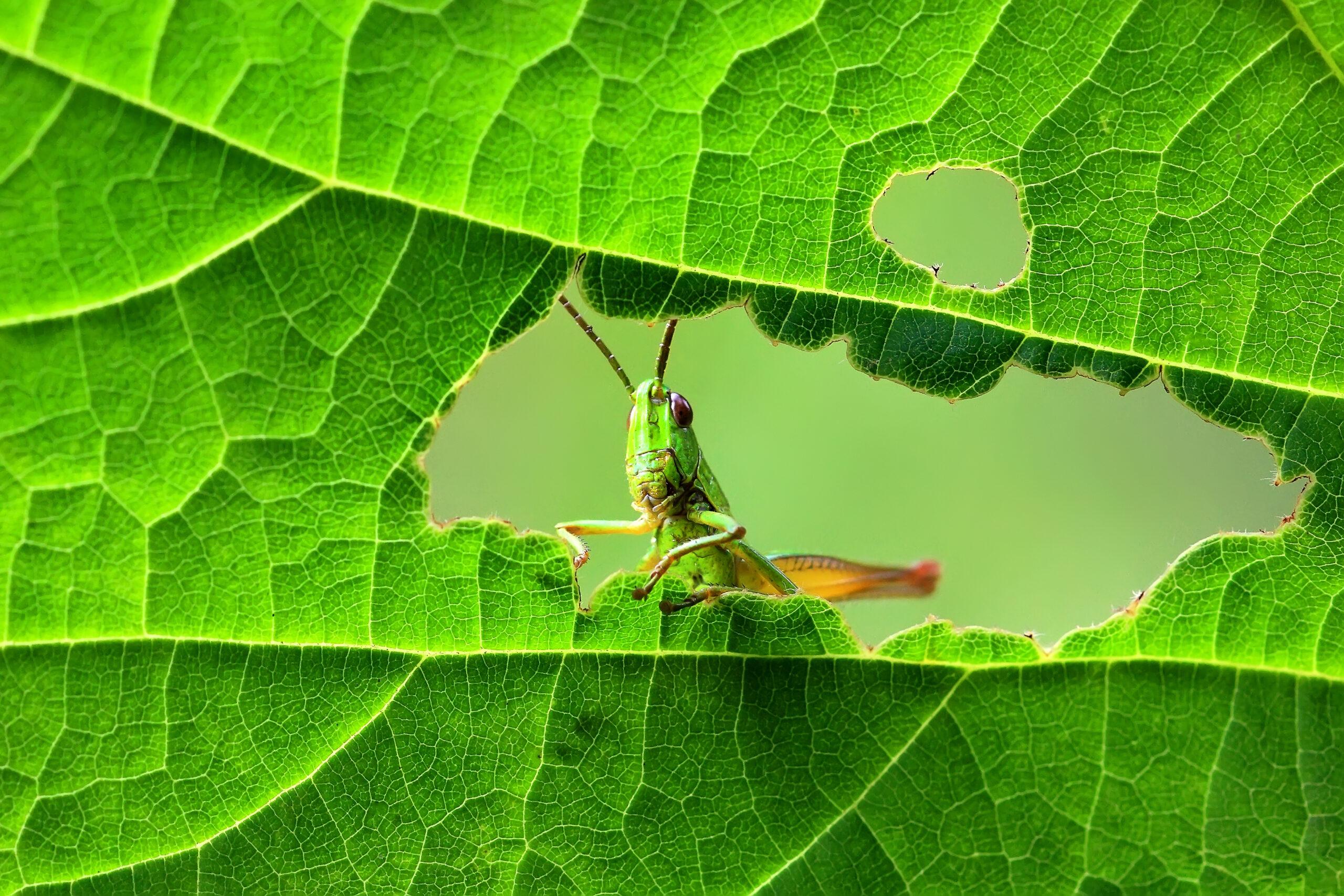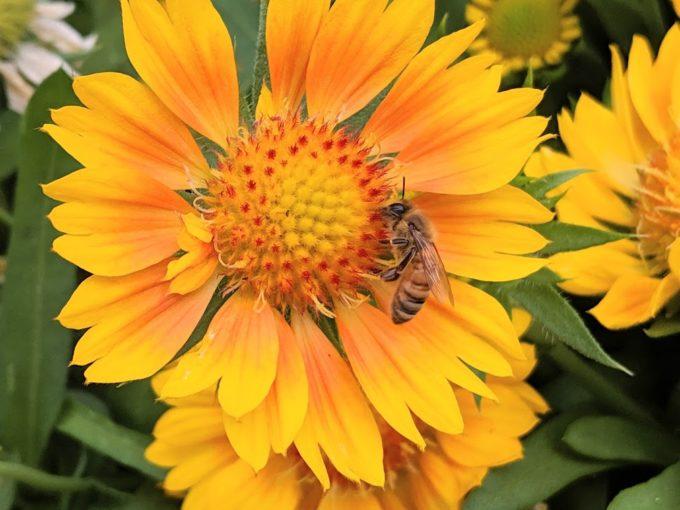Nature & Wildlife
Nurturing vibrant ecosystems
Home » Garden & Home » Nature & Wildlife
May We Help You?
Honeybees
Did you know that one honeybee produces 1/12 a teaspoon of honey in her lifetime? Unlike solitary native bees, honeybees are social insects that live together in hives, working together to provide for the colony. Known for their “waggle dance” that communicates food sources to fellow workers in the hive, honeybees wear out their wings in nearly six weeks from their pollinating flights.
Understanding the unique differences of our neighborhood pollinators gives us the opportunity to better appreciate them – and to better plant for them. Our Tagawa Team includes several beekeepers who love sharing their knowledge. If you’re interested in learning more, we’ll be glad to point you toward local beekeeping resources.
Butterflies
To welcome the butterflies, first welcome the caterpillars! Through the process of metamorphosis, the caterpillar devouring your dill and parsley today may become the luminous swallowtail butterfly flitting through your garden next week. Pansy worms become fritillaries. Caterpillars on Virginia creeper may become sphinx moths. To help you identify the larval form of garden guests, bring a photo to our Garden Advisors!
For adult butterflies, plant flowers that offer a wide landing pad, like bee balm, liatris, and coneflower. Provide a shallow pebble tray of water for puddling. You can also plant for specific butterfly populations! Creating a Monarch Waystation in your garden is a fun family project that provides habitat for beloved monarchs.
Backyard Birds
The more habitat we create in our garden for birds, the healthier our gardens will be – and the happier we will feel watching the birds’ feathered antics.
Even in small spaces, we can cultivate food and protection for backyard birds by planting fruit-producing trees, sheltering shrubs, and seed-filled perennials. Adding a water source, even in the winter months, will ensure backyard bird activity most of the year.
Next time you visit Tagawa Gardens, stop by our birdseed shack and pick up a copy of our “Bird Checklist for Southeast Metro Area.” The checklist includes resident timing facts and a key to preferred foods. Through every season of the year, local birding is a fantastic way to experience the Colorado outdoors.
Deer, Rabbits, & Other Pests
While we work hard to create beautiful gardens that support pollinators, birds, and wildlife, all of us live with garden challenges that need specific solutions.
From Japanese Beetles to neighborhood deer, we’re here to share the struggle and to work toward earth-conscious solutions. Accurately diagnosing your pest issue is crucial to thoughtfully choosing the best strategy. To get started, stop by our Garden Advisors desk with your pest photos or with a plant sample in a sealed bag.
To help handle invasive, destructive garden pests, we will guide you toward products we trust. For larger wildlife, we stock environmentally friendly repellents that help deter deer, rabbits, and squirrels. We even carry mesh to shield your prize plants from larger insects and uninvited grazing.
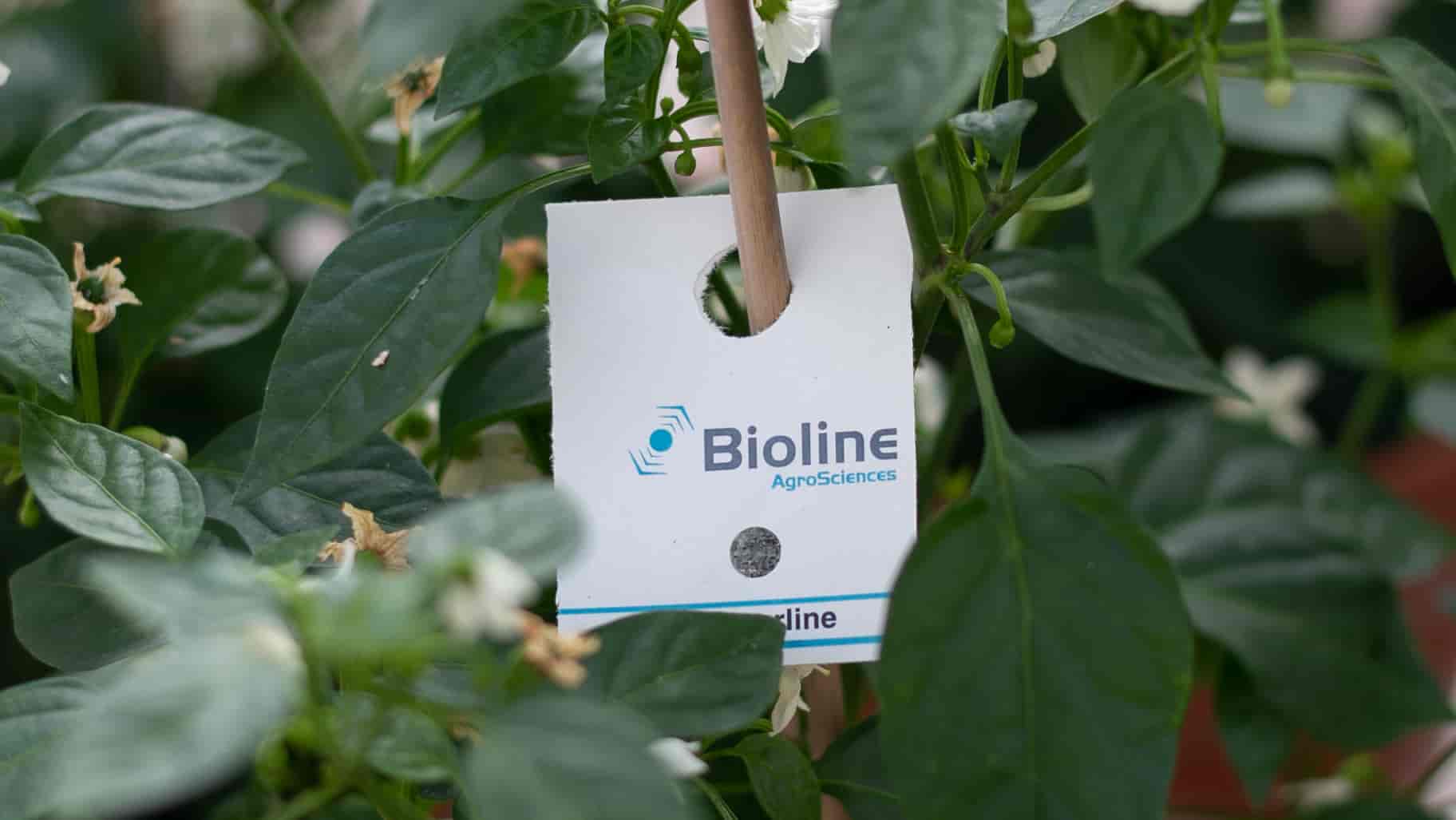
Sustainable Practices
At Tagawa Gardens, we always seek to be aware of how our actions affect our earth, our ecosystems, our environment, and each other.
With our commitment to sustainable practices, you can rest assured that we use an environmentally friendly beneficial insect program that leverages the power of nature to address pest issues. The small sachets on many of our hanging baskets and container gardens remind us that gardens, like all living systems, do best when working together.
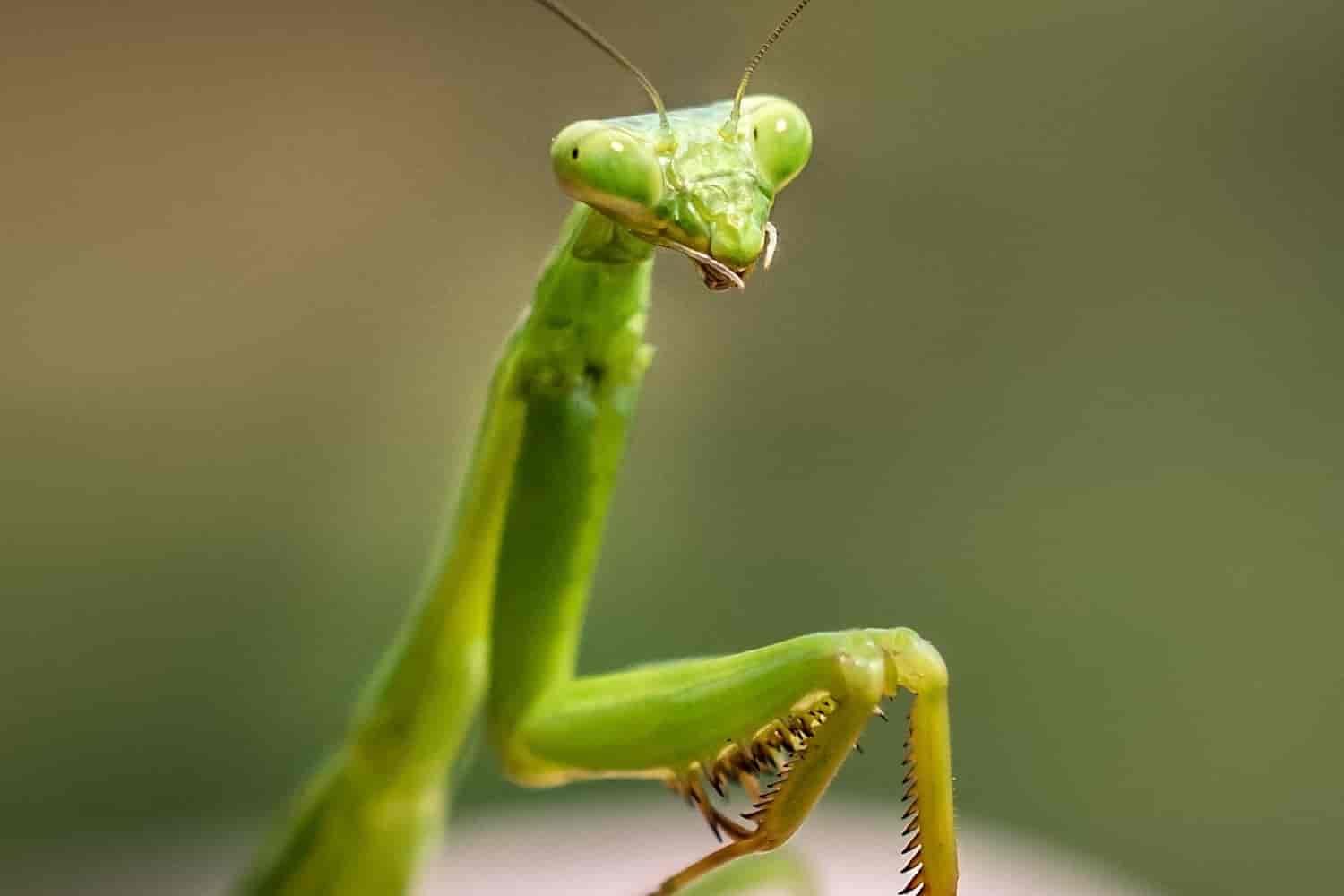
Garden Helper Hunt
We get so excited about pollinators and beneficial insects that we want to introduce you to some of our favorites! From Nadine the Native Bee to Demetrius the Dragonfly, explore the garden center to find eleven garden helpers next time you visit us. To get started with the fun, stop by the birdseed shack to pick up your guide!
Spotlight
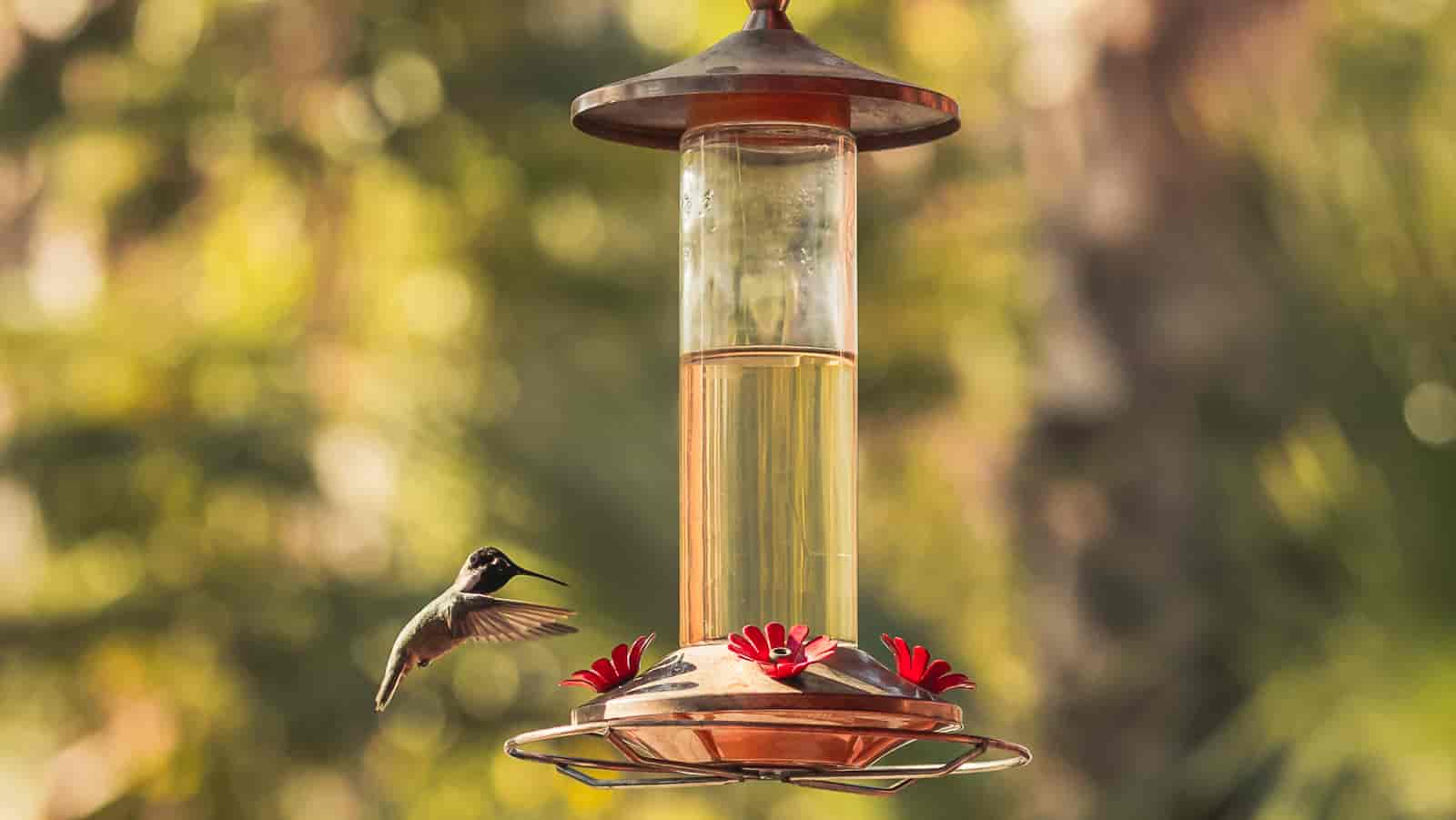
Homemade Hummingbird Nectar
1 part white sugar
4 parts water
Boil, cool, store any extra for up to two weeks
Clean feeder twice weekly
Never use food coloring
Depending on your location, hang your hummingbird feeders in mid-April through early May to invite spring arrivals. Keep those feeders cleaned and refilled with fresh nectar until mid-October.
Spotlight
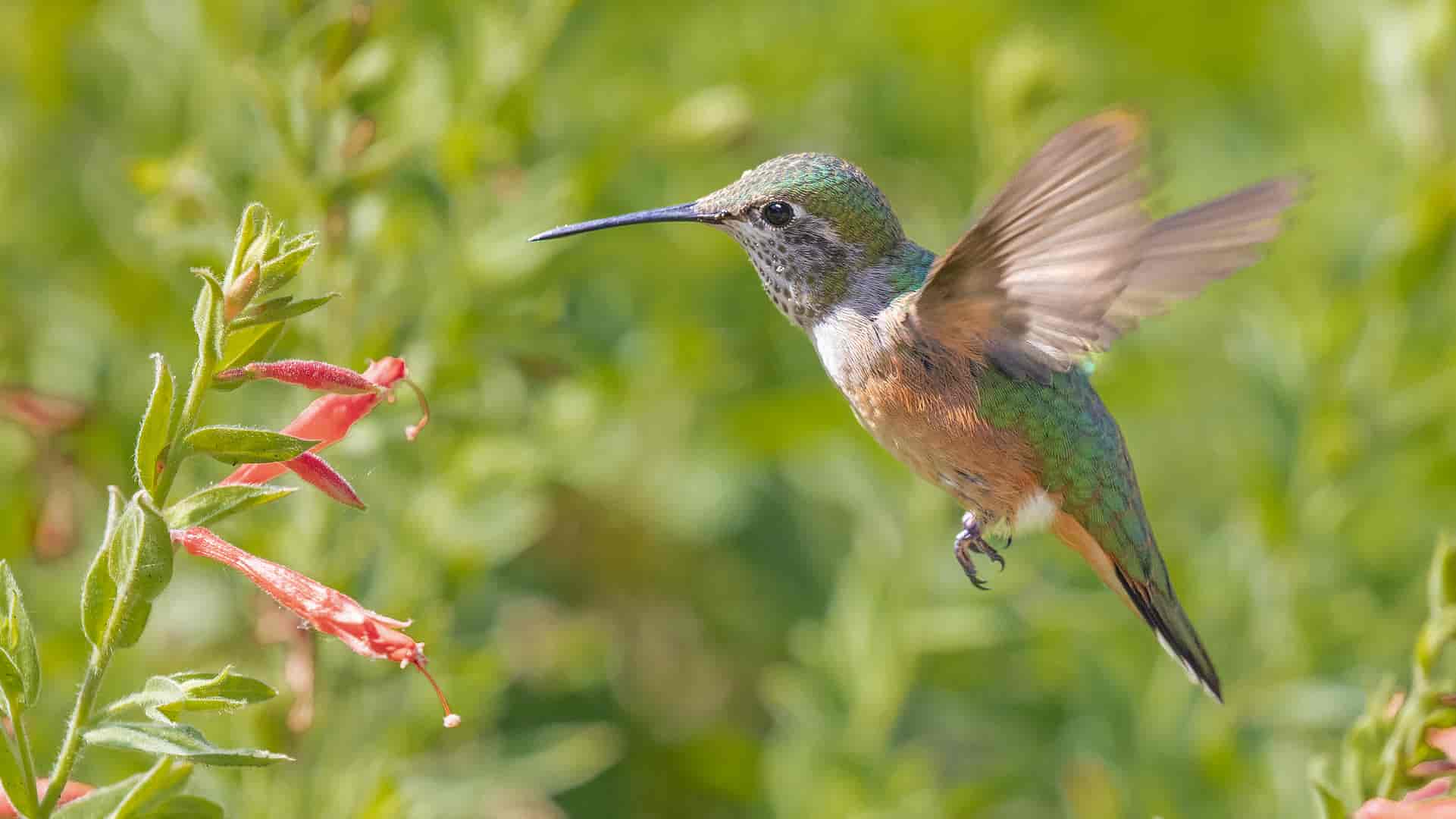
Hummingbirds
Hummingbirds are beautiful pollinators, wonderful acrobats, and charming communicators. Along Colorado’s Front Range, we often see broad-tailed, calliope, and Rufous hummingbirds darting through our yards. Their favorite food is nectar, but hummingbirds also consume aphids and other tiny, plant-eating insects.
Hummingbirds are attracted to bright tubular flowers, such as orange hummingbird trumpet and purple catmint. If you are planting annual containers on a small, sunny balcony, try pairing vermillionaire and salvia, two annual flowers that can turn your porch into a hummingbird haven!
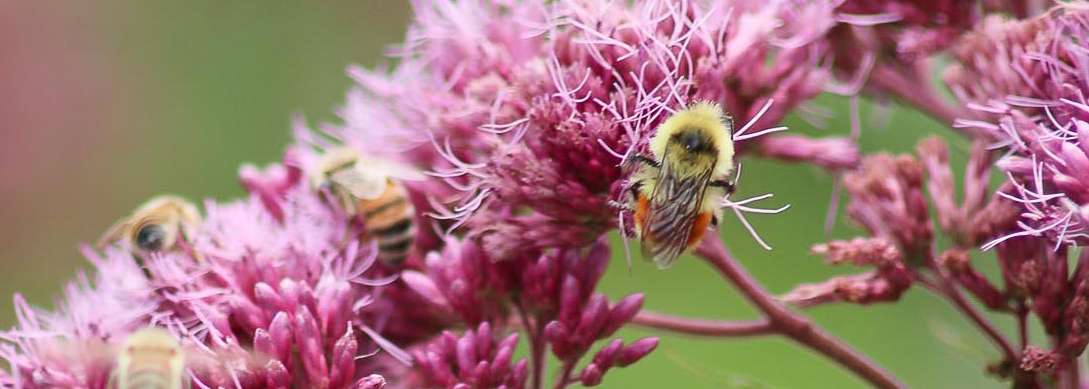
Native & Solitary Bees
Did you know that Colorado is home to 946 species of native bees? About 30% of solitary native bees nest inside the hollow stems of garden plants. These quiet garden visitors are crucial to pollinating the flowers, vegetables, and fruits that ultimately feed us all. Native insects and native plants also share a vital interdependence.
To encourage native bees, we stock a variety of native bee houses that you can tuck into a sheltered area of your yard. Before spring flowers emerge, place your native bee house outside in early March. Make sure your bee house is sheltered from winds and rain and elevated about 3’ off the ground. Choose a morning sun location and nestle the house within 300 feet of a pollen source.
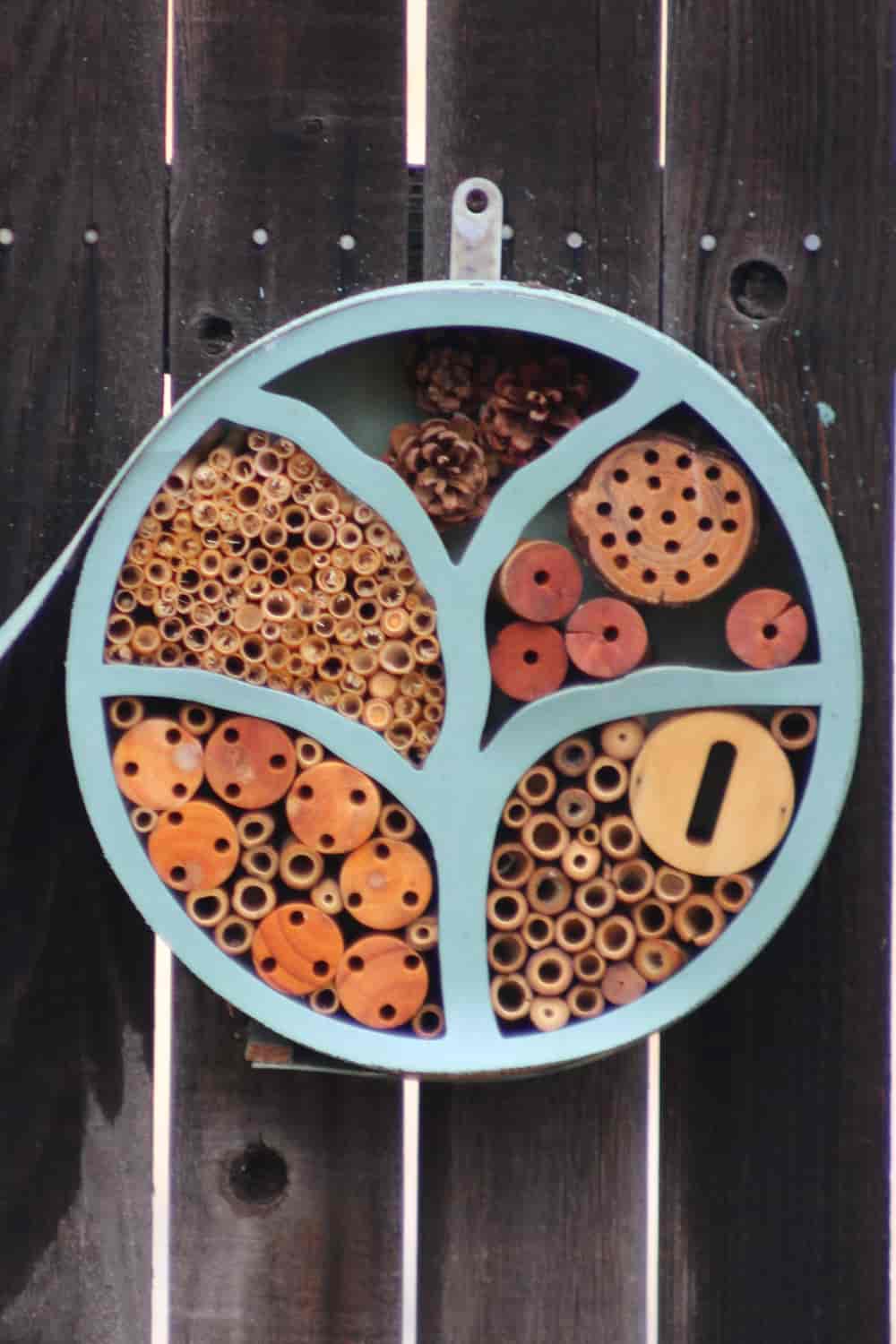
Houses & Supplies
For all the wildlife you can welcome, we carry a great selection of shelters, houses, water resources, feeding stations, and feeders. We also carry bat houses to help support Colorado insect-eating bats! Whether you want to provide shelter for backyard birds or support your local native bee populations, we’ve got you covered!
Spotlight
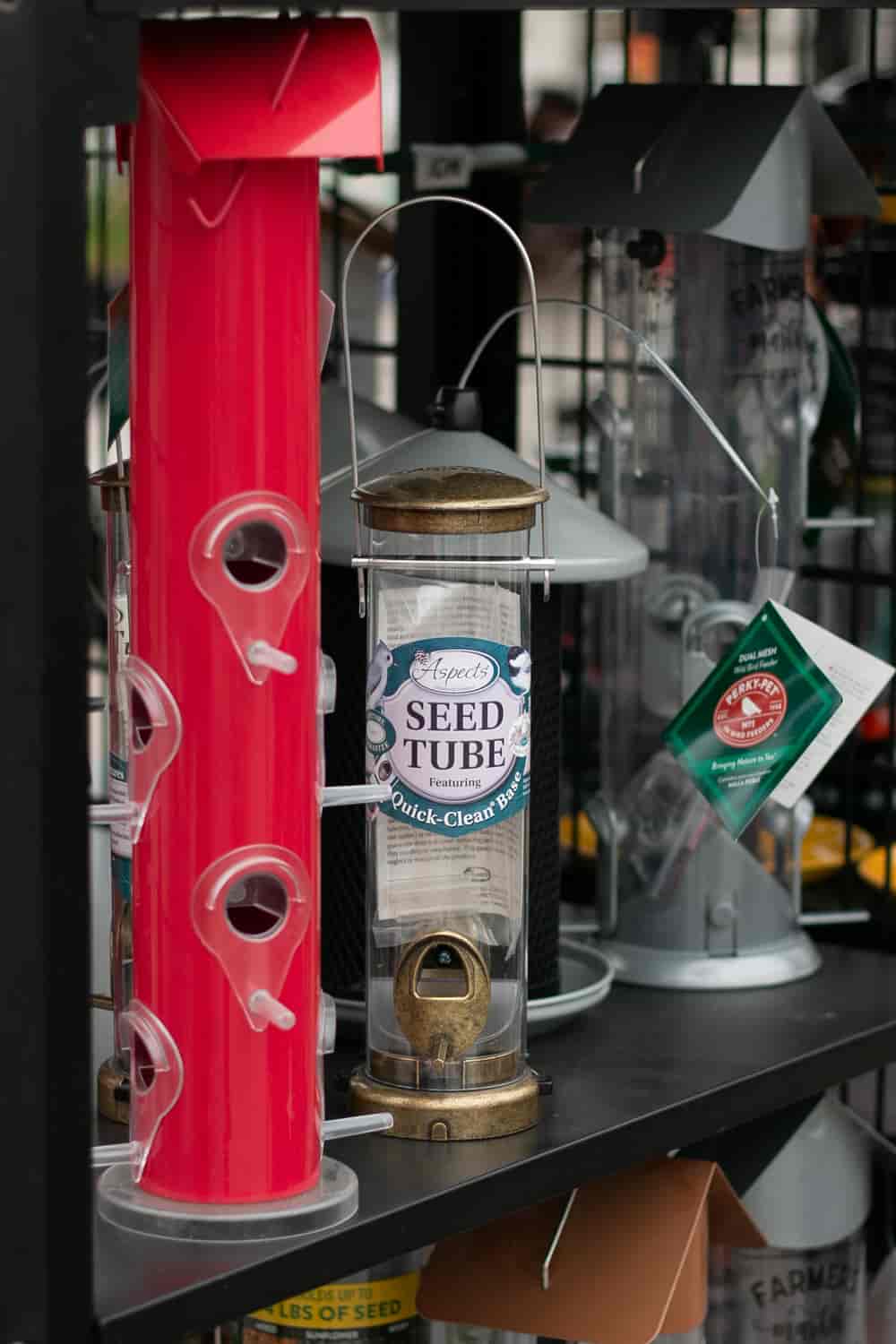
Feeders and Seed
Our feeders come in many styles to hold the seeds, fruits, nuts, suet, and nectars your backyard visitors love. We carry a variety of feeders suited to different species of wild birds, and enough bagged and bulk seed and peanuts to satisfy your feathered friends. Stop in to learn which choices are best suited to certain birds!
Spotlight
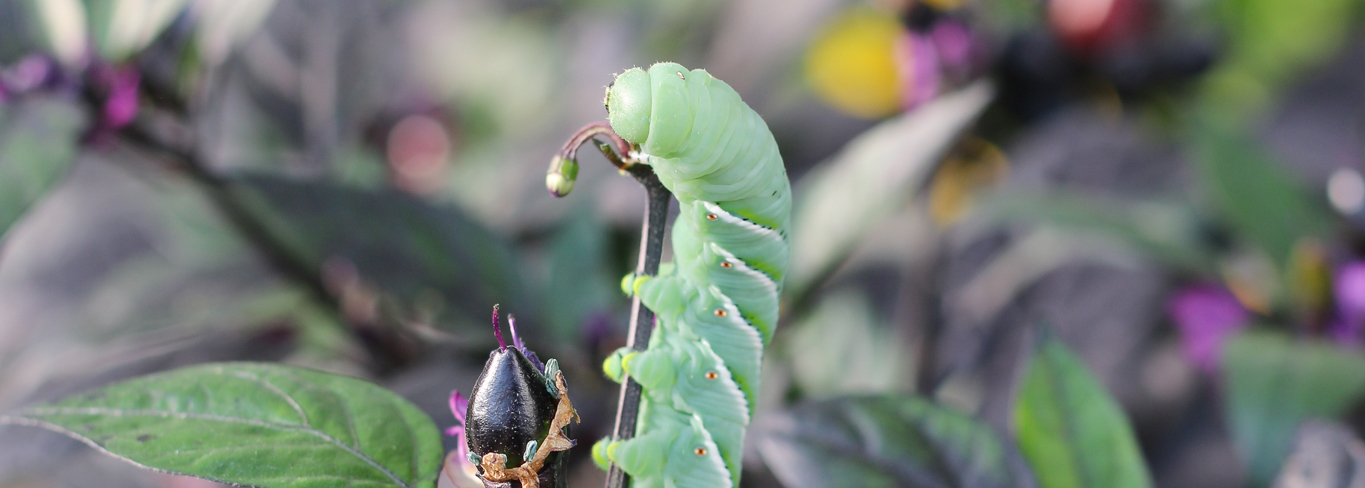
Insect Biodiversity
Did you know that 97% of insects in our garden are either beneficial or benign? From the global food chain to our own backyard gardens, these insects form the natural web that supports life as we know it. In fact, one in every three bites of food depends on a pollinator.
How can we help these wonderful insects? Be sure to leave natural organic matter and leaves in your garden, creating wind and sun protection for these smaller garden helpers. Provide water in a shallow pebble tray. You might also leave a small patch of garden soil undisturbed. Nearly 70% of our native bees are ground dwelling, seeking quiet places in the garden to safely burrow.
Seasonally, we carry beneficial garden helpers such as ladybugs, praying mantis egg cases, and red wiggler worms. Talk with our Garden Advisors to understand when to introduce these special guests to your garden. (Seasonal supplies are limited.)
